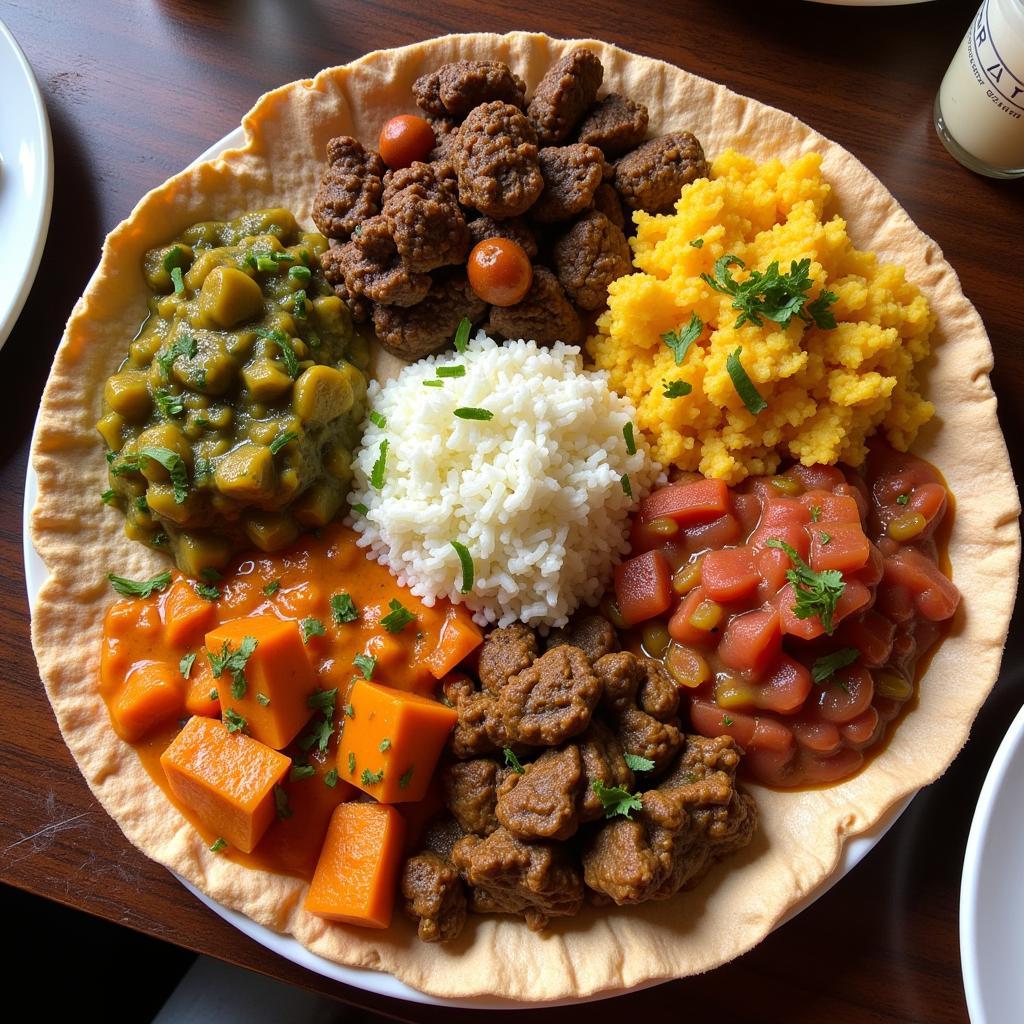Deliciously Diverse: Exploring African Food Recipes Vegetarian
African cuisine, with its vibrant flavors and diverse ingredients, often evokes images of hearty stews and grilled meats. However, the reality is far richer and more inclusive, offering a world of possibilities for those seeking vegetarian African food recipes. From the spicy stews of West Africa to the lentil-based dishes of Ethiopia, the continent boasts a variety of plant-based options that are both flavorful and nutritious.
Unveiling the Rich Tapestry of Vegetarian African Food
The beauty of vegetarian African food lies in its simplicity and reliance on fresh, locally-sourced ingredients. Staples like beans, lentils, rice, plantains, and yams form the foundation of many dishes, complemented by an array of spices and herbs that create a symphony of flavors. Each region in Africa boasts its own unique vegetarian culinary traditions, showcasing the diversity of the continent’s plant-based bounty.
Embracing the Flavors: Popular Vegetarian African Dishes
Let’s take a culinary journey across Africa, exploring some of the most popular vegetarian dishes:
- West Africa: This region is renowned for its peanut-based stews, often featuring sweet potatoes, spinach, and okra.
- East Africa: In countries like Kenya and Tanzania, coconut milk and spices infuse flavor into lentil and bean stews, often served with rice or ugali (a maize-based porridge).
- North Africa: The Mediterranean influence is evident in North African cuisine, with tagines (slow-cooked stews) featuring vegetables like eggplant, zucchini, and chickpeas.
- Southern Africa: Maize is a staple in this region, often ground into a porridge called pap or sadza, served alongside flavorful vegetable and bean stews.
 Ethiopian Vegetarian Platter
Ethiopian Vegetarian Platter
More Than Just Food: The Cultural Significance of Vegetarian Dishes in Africa
Vegetarianism in Africa often goes beyond dietary choices, often intertwined with religious practices and cultural beliefs. In some cultures, meat is considered a luxury, reserved for special occasions, while plant-based meals are the everyday norm. This has led to the development of a rich repertoire of vegetarian recipes that are both delicious and deeply rooted in tradition.
For example, in Ethiopia, the Orthodox Christian community observes numerous fasting days throughout the year, abstaining from meat and dairy products. This has resulted in a vibrant vegetarian cuisine, featuring dishes like shiro wat (a chickpea stew) and lentil stews, bursting with flavor and spice.
“Food is an integral part of our cultural identity,” says Abena Osei, a Ghanaian chef specializing in traditional African cuisine. “Our vegetarian dishes are not just about sustenance but about preserving our heritage and connecting with our roots.”
Tips for Cooking Vegetarian African Food at Home
- Embrace the Spices: African cuisine is known for its bold flavors, so don’t be afraid to experiment with spices like cumin, coriander, turmeric, ginger, and chili peppers.
- Fresh is Best: Whenever possible, use fresh, seasonal ingredients to maximize flavor and nutritional value.
- Go Slow and Low: Many African stews and sauces benefit from slow cooking, allowing the flavors to meld and deepen.
- Don’t Be Afraid to Adapt: Feel free to adjust the recipes to your liking, substituting ingredients or adjusting spice levels to suit your taste.
Conclusion
Exploring vegetarian African food recipes is a culinary adventure that promises to tantalize your taste buds and broaden your culinary horizons. From the spicy stews of West Africa to the lentil-based dishes of Ethiopia, the continent offers a diverse range of plant-based options that are both flavorful and nutritious. So why not embark on a culinary journey and discover the delicious world of vegetarian African food?
